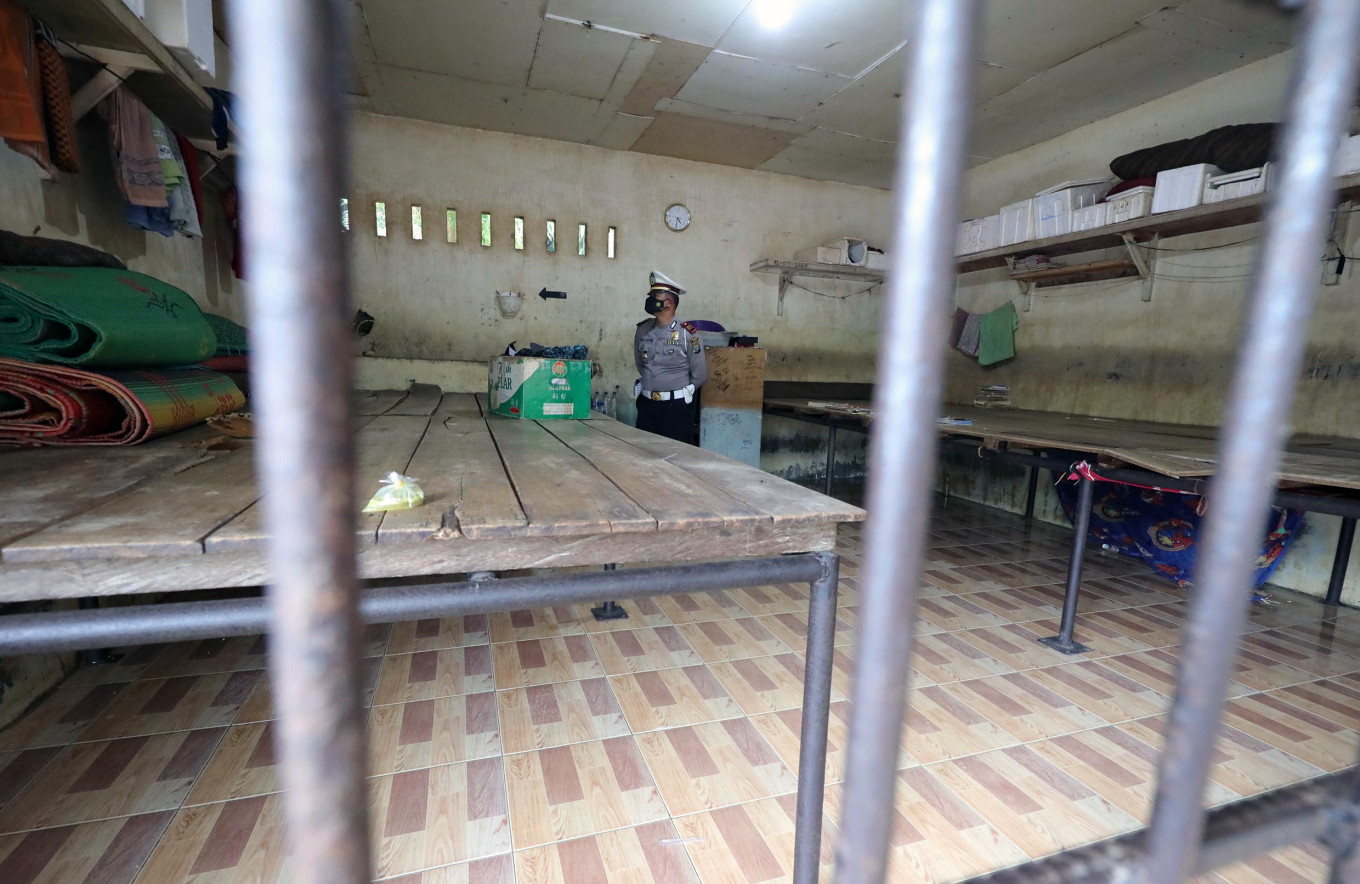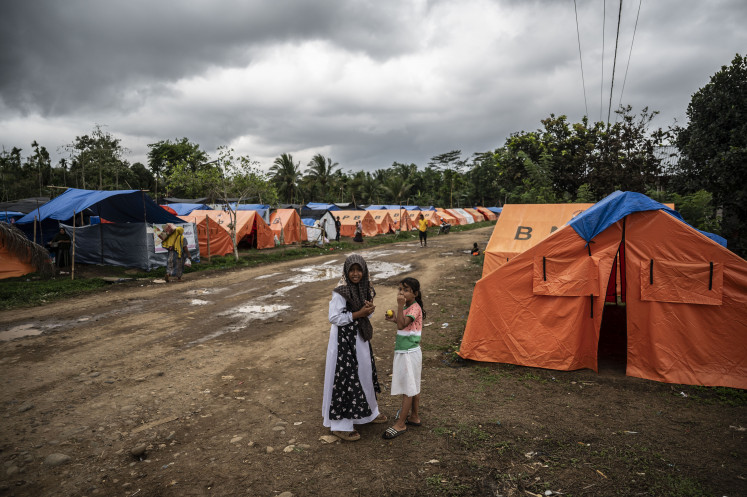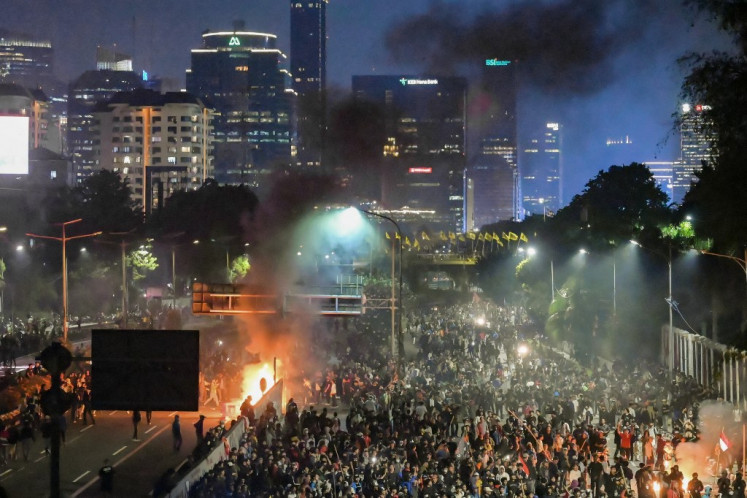Popular Reads
Top Results
Can't find what you're looking for?
View all search resultsPopular Reads
Top Results
Can't find what you're looking for?
View all search resultsEight found guilty in fatal Langkat caging
Change text size
Gift Premium Articles
to Anyone
T
he Stabat District Court in Langkat, North Sumatra, has found eight defendants guilty of being involved in the fatal caging of people in the house of graft suspect and inactive Langkat regent Terbit Rencana Perangin-Angin.
The defendants, who include Terbit’s son Dewa, were on trial for having acted as caretakers of the iron-barred cells and were allegedly involved in caging that led to the death of four victims.
Dewa and three other defendants have been charged with group violence resulting in death, which carries a maximum penalty of 12 years in prison, and premeditated murder, with a maximum penalty of 15 years’ imprisonment under the Criminal Code.
The four were found guilty of group violence resulting in death and were sentenced to 19 months in jail. State prosecutors had demanded three years of imprisonment.
In a separate trial, four other defendants were found guilty of illegal incarceration leading to death, which carries a maximum penalty of five years in jail under the Human Trafficking Law.
One defendant was sentenced to two years in jail and the other three to three years in jail. Prosecutors had demanded four years of imprisonment.
Both defendants and prosecutors had yet to decide whether to appeal the verdicts.
The North Sumatra Police have also named Terbit a suspect in the caging.
The cages were discovered not long after the Corruption Eradication Commission (KPK) arrested then-regent Terbit in January for allegedly demanding kickbacks from private contractors in exchange for infrastructure projects.
The KPK and the North Sumatra Police found two cages in Terbit’s house holding dozens of people who are thought to have been forced to work on his oil palm plantation, and they began a separate investigation into the matter.
The National Commission on Human Rights (Komnas HAM) has accused Terbit of keeping people in cages since 2010. Terbit claims he was running a rehabilitation center for narcotics users.
The commission found slavery-like practices and noted that some 57 people were being held in the two cells at the time of their discovery. Most were drug users, male and poor.
Komnas HAM and the Witness and Victim Protection Agency (LPSK) have recommended that the Attorney General’s Office (AGO), the National Police and the Indonesian Military (TNI) further investigate the alleged roles of certain members of the police and military in what they say were systematic, years-long human rights violations. (dre)











